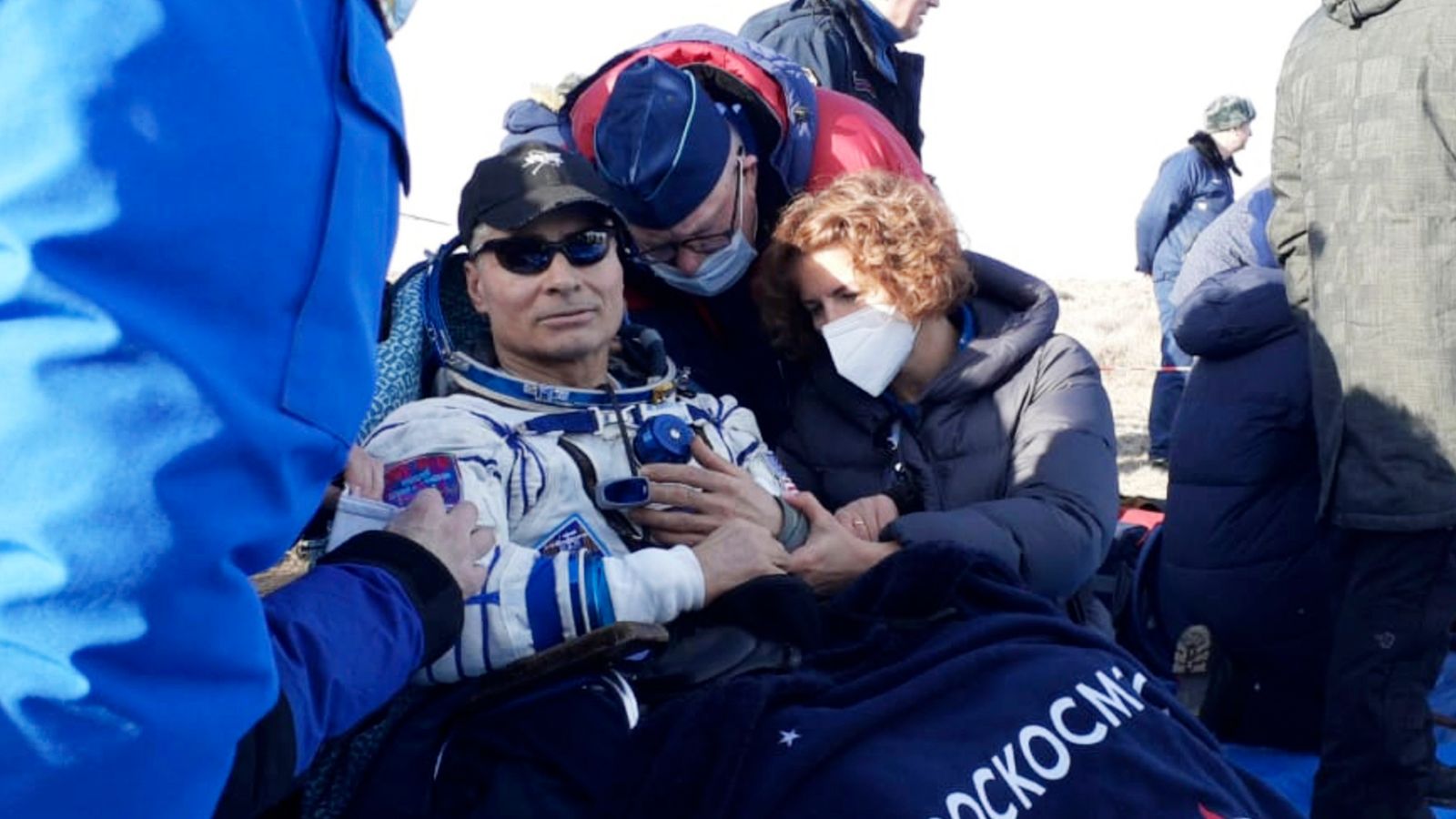A NASA astronaut caught a ride back to Earth aboard a Russian Soyuz capsule, bringing to an end a US record 355 days aboard the International Space Station.
Mark Vande Hei and his two Russian cosmonaut colleagues touched down on Wednesday, landing on a world torn apart by a war and their nations at loggerheads.
Space landings are always tense affairs – and it was reasonable to expect today’s to be even more so, with US-Russian relations their worst since the worst days of the Cold War.
But the smile on the face of returning US astronaut Marke Vande Hei said otherwise.
So too did the reception he was shown by ground crew on the Khazakh steppe as he was carried from the space capsule to receive the medical attention required by anyone who has spent nearly a year in microgravity.
At Star City near Moscow, mission control for the landing announced “Welcome Back Mark” on its giant video screen.
But how were feelings in the orbiting petri-dish of international cooperation 250 miles above us?
Space-grown lettuce could help astronauts avoid bone loss on three-year mission to Mars
Russian cosmonauts wear Ukrainian colours while boarding International Space Station
International Space Station boss says ‘no tensions’ after Russian joke that US astronaut would be left behind
According to their public statements, it is very much business as usual.
‘People have problems on Earth, but in orbit we are one crew’
International Space Station Commander Anton Shkaplerov, who returned to Earth with Vande Hei, said before his departure: “People have problems on Earth, but in orbit we are one crew. A symbol of the friendship and cooperation in space.”
While feelings may be warm up in the ISS, back on Earth, things are falling apart.
Sanctions have effectively collapsed Russia’s commercial space industry. International scientific collaborations with the European Space Agency have also been suspended.
The future of the ISS is far more uncertain.
For now, cooperation has to endure. The $150bn orbiting platform can’t stay in space without both US and Russian modules.
And while Roscosmos, the Russian space agency, says it is exploring options to separate their respective space stations, sanctions mean it’s unlikely they’ll have the money to do that.







